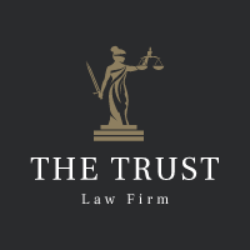For companies that uncover fraud the ramifications can be huge but we are here to help you decide on the right course of action and assist you in navigating any regulatory requirements that need to be put in place. Our serious crime solicitors can also advise on the possibility of taking a private prosecution, where appropriate.
Our expertise also extends to being able to offer practical help and solutions for companies that are suffering as a result of the financial crime.
We also have extensive experience in helping to defend clients facing allegations of fraud and financial crime. We have successfully defended many high profile cases and helped prevent clients who have been arrested from ever facing trial.
Fraud and financial crime often attract unwanted press interest. The Trust law firm offers a unique reputation management service free of charge where our in-house media consultant will help prevent or limit the damage from any potential coverage from news outlets. This underlines our commitment to offering you the fullest and best possible service.
What is serious fraud?
Serious Fraud is the use of illegal means to obtain money, assets, or other property owned or held by an individual, organisation, financial institution.
Serious fraud and financial crimes are being actively pursued by prosecutors and regulators. The Trust’s serious and financial crime solicitors have dealt with many high profile investigations and prosecutions.
We regularly prosecute cases which feature the following characteristics:
Director / Employee Fraud
Money Laundering
Deception
Financial Fraud such as credit, insurance, tax and invoice duplication
Tender Contract Fraud
Grants
Bribery and Corruption
Land Fraud
Private Prosecutions can act as a catalyst to procure two outcomes, both of which are attractive to companies who have been victims of fraud.
Firstly, a private prosecution acts as a deterrent aimed at reducing the likelihood that a similar act will occur within the company. Secondly, it can result in substantial recovery of monies lost as a result of the fraud.
What should I do if I believe I have uncovered fraud in my organisation?
If you believe you have discovered acts that may be fraudulent you need to act quickly, employees should inform their HR department. Partners, directors or shareholders need to inform their fellow partners or directors as soon as possible and take appropriate legal advice, such as our serious crime solicitors.
Following the discovery of a business fraud, the actual stolen money or assets could be just the tip of the iceberg. Other, often unforeseen problems are likely to result from the betrayal of trust including:
Possible Criminal and/or Serious Fraud Office (SFO) investigations into the business and more importantly you personally.
Personal claims against your personal assets including your own home.
Insolvency
An inability to pay staff, suppliers, tax and pension funds
Loss of trust from both consumers and suppliers
Loss of staff morale and productivity
Massive Stress
The possible end of the brand you have spent so long building
Manage the situation
Before confronting the suspected fraudster, you need to think rationally and take all steps necessary to protect the business. From this point forward what is needed is a clear strategy.
Steps that your lawyer will advise you about include:
Taking control of the businesses finances: for example you may need to cancel debit and credit cards
Alerting suppliers/customers
Your own duties as a director
Reporting this matter to the Police/ SFO
Bringing a claim for breach of fiduciary duty/fraud/embezzlement
Does there need to be an internal investigation?
Yes is the short answer.
If fraud has been identified, it is vitally important for a company or partners to take advice from its lawyers. Any subsequent investigation process should be immediate, impartial, clear, recorded, documented and agreed upon before it is undertaken.
Executing the investigation in line with the agreed process is vital, especially if the matter is to be reported to the SFO or to the police as it will help reduce the risk of evidence being lost or destroyed.
You must always be aware of the need to protect yourself and the business at the same time as getting to the bottom of the fraud.
In cases where the fraud identified is so serious and complex the company may not have the resources or expertise to investigate adequately. At this point the board may also consider self-reporting to the SFO, Financial Conduct Authority (FCA) or other relevant agency.
How do I report the fraud?
Once the extent of the fraud has been ascertained you must report it to the authorities. You will also need to speak to your insurance company. They can offer you advice and will work with the police to process any claims you make as a result of the fraud.
Serious or complex fraud, including bribery and corruption will be dealt with by the Serious Fraud Office (SFO).
Will this go to court?
Your serious fraud or financial crime solicitor will work through the options available to you. If the SFO has been informed and criminal proceedings are being brought then the process is out of your control.
The options for suing for damages include:
Litigation – Bringing a claim at Court
Alternative Disputes Resolution such as mediation (although the negative state of the relationship between yourself and the fraudulent partner may prevent this from being successful)
Working with a 3rd party such as the Official Receiver (in the case of insolvency)
Injunctions can also be sought to stop your business partner carrying out certain commercial activities.
You may also be forced to defend claims that are brought by suppliers, employees, creditors and customers.
